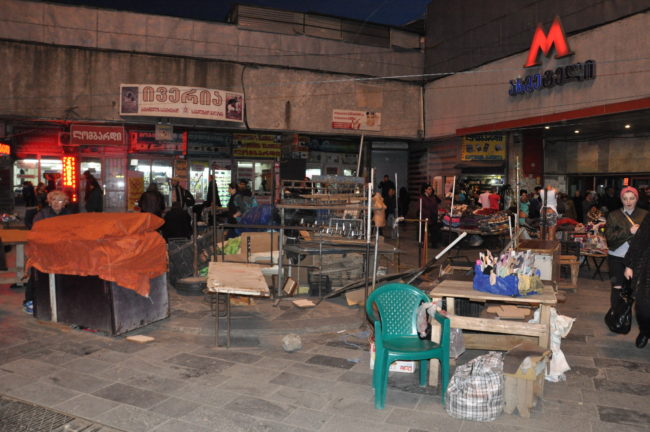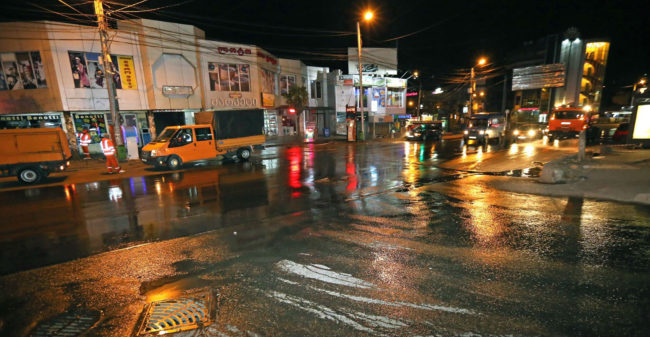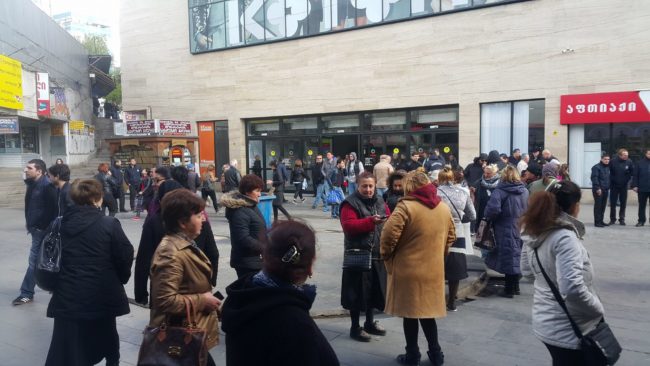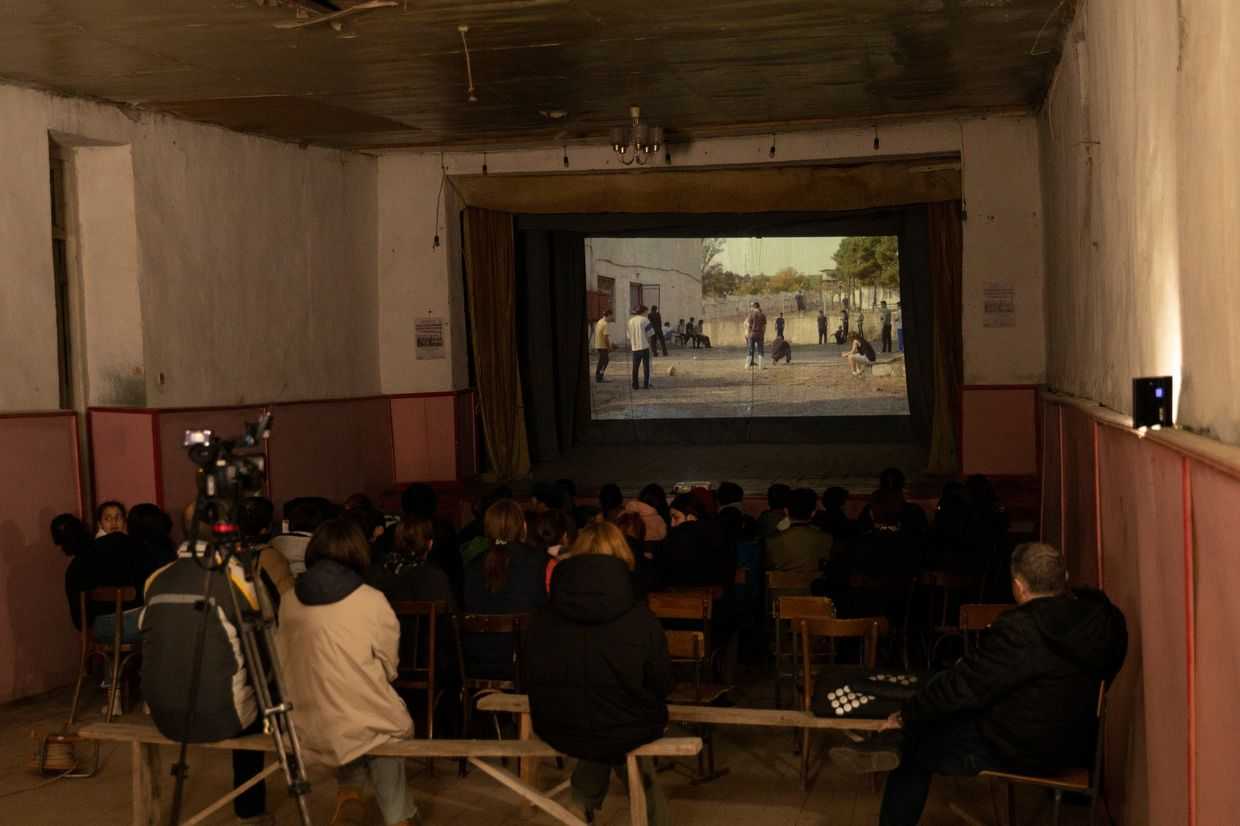

 After clearing Tbilisi’s central streets of vendors, City Hall cracked down on street vendors near the Akhmeteli Theatre Metro Station in Gldani District on 25 April.
After clearing Tbilisi’s central streets of vendors, City Hall cracked down on street vendors near the Akhmeteli Theatre Metro Station in Gldani District on 25 April.
Dozens of people found their that their stalls had been removed from the small square in front of the metro station, after City Hall’s Supervision Service cleared the area before 06:00 in the morning. Some of the sellers did not even have stalls.
Vendors outside Akhmeteli Metro, like many others in the city, used to sell clothes, books, fruits and vegetables, and various other things.
While the city claims that they are a nuisance to pedestrians in some of the Tbilisi’s busiest streets, many of the vendors claim that selling on the street is the only way they can survive.
Vendors ‘warned in advance’
According to an official statement by City Hall, vendors at Akhmeteli Theatre had been warned to stop trading prior to their stalls being removed. ‘They won’t be able to continue selling on the streets, which is illegal’, the spokesperson said.
The vendors with whom OC Media spoke complain that they barely make enough money to cover their daily food costs. Some need to buy crucial medicine, and the vast majority of them have debts as well, which they must repay daily.
City Hall has said that several of the vendors had already talked to the administration of nearby marketplaces.
For vendors at Akhmeteli Theatre, there were two such options — to the left (around 100 metres from the metro), where monthly rent for counters is ₾200 ($80), or to the right, where traders pay different rates depending on the kinds of goods they sell and how big their counter is. Here daily rates vary from ₾1 ($0.40) (for a woman who sells only a few lemons and has a half-metre counter) to ₾20 ($12) or more.

City Hall claims that they have suggested vendors move to nearby markets, and that they will not need to pay rent for the first six months. This has not allayed the vendors’ fears, as they do not see the prospect of their daily problems being solved anytime soon.
Both markets are near to the metro station. However, they do not have the same level of foot-traffic as directly in front of the metro. This puts them at risk of not being able to sell their goods.
City Hall claims that they have negotiated terms with the Market Association — an independent association of 17 large-scale markets in Tbilisi — and have vowed to create ‘conditions for the realisation of products in competitive conditions’. However, many vendors also complain about the disparity between their goods and those of more established vendors in the markets.
‘We have so few things to sell, how could I compete with someone who has been sitting there for ages, and has much more good than me?’ 54-year-old Lali told OC Media.
As for the traders in these markets — they don’t seem very unhappy about the recent developments in their neighbourhood. They saw the vendors as ‘unregulated competitors’, who took a stream of possible clients.
‘When someone offers them the same goods as we do as soon as they come out of the metro, who would visit us in these distant corridors?’ a middle-aged woman selling clothes in the neighbouring market told OC Media. Many of her colleagues echoed the sentiment.
The patrol police as well as the City Hall Supervisory Service have been patrolling the area near the metro to prevent the vendors from returning.
Tbilisi City Hall has offered vendors space in a number of larger, official markets, without having to pay for the next six months. These include at the railway station, near the Dinamo stadium, Didube metro station, the old ‘deserters’ market, and in Isani and Samgori.
Mixed reactions

Reactions to crackdown, both in person and on social networks has been split. ‘Finally, the place is clean’, OC Media heard a middle-age man exclaiming as he passed through the area. City Hall has also said that residents often complained about the mess caused by the street vendors.
Some facebook users have criticised the City Hall for unfairly targeted one of the most vulnerable layers of society, while ignoring Tbilisi’s huge traffic problems. ‘While the authorities confront the vulnerable and do not work on the traffic and parking issues, which is a much more complex subject, their moves seem insignificant, populist and merely a facade’, one user wrote.








